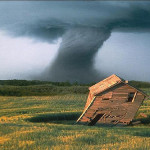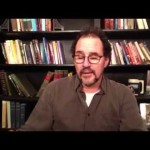We run our website the way we wished the whole internet worked: we provide high quality original content with no ads. We are funded solely by your direct support. Please consider supporting this project.
“Unclean” Animals and the Corruption of Creation
I’ve always been a bit mystified over the distinction between “clean” and “unclean” animals in the OT. I have read several attempts to justify this distinction on the grounds that the former were healthier — or at least less dangerous — to eat, but these defenses never struck me as all that convincing. In his recent book Is God a Moral Monster? (Baker, 2011), Paul Copan offers a much more compelling defense of this distinction (pages 79-84). One aspect of his argument I found particularly interesting was his contention that animals were considered “clean” because they reflect the original order of creation more perfectly than the “unclean” animals and “unclean” because they reflect the effects of the fall more than the “clean” animals.
The connection between the “clean” and “unclean” distinction, on the one hand, and the creation and fall, on the other, is reflected in the book of Leviticus by the repeated phrases “you may eat” and “you shall not eat” (Lev. 11:3, 9, 11, 21, 22) which, Copan argues, echo the provision and prohibition to Adam and Eve in the garden (Gen. 2:16; 3:2). This connection arguably explains why predators and animals that had been preyed on were prohibited (Ex 22:31; Lev. 17:14) for, according to the Genesis narrative, the original creation was non-carnivorous (Gen. 1:31). Even when humans were permitted to eat meat after the flood they had to first drain the blood out, for the blood was (and is?) considered sacred (Gen. 9:4). Hence, animals that prey on others and consume their blood are, to this degree, out of sync with God’s creational design.
What I find most significant is that this explanation of the “clean” and “unclean” distinction presupposes that nature has been significantly affected by the fall, as the Genesis narrative itself suggests (Gen. 3: 14-19) and other passages of Scripture confirm (e.g. Rom. 8: 19-22). The very fact that Satan is said to hold the power of death (Heb 2:14) reveals how thoroughly creation has been corrupted, for it means that, at least as we now experience it, there is nothing “natural” about death. So too, the fact that the New Testament consistently depicts physical infirmities as directly or indirectly due to Satan and demonic influences makes this point as well.
As I argued on this blog several years ago (it was actually several blog posts sprinkled throughout 2007 beginning here), the view that nature itself has been corrupted by fallen spirit agents has enormous apologetic value, for it means there is no such thing as “natural evil.” While we should avoid the nonsense of claiming there’s a specific demonic force behind every physical infirmity or every “natural” disaster, we can and should nevertheless claim that, were it not for the corrupting influence of Satan and demonic powers in nature, there wouldn’t be any physical infirmities or “natural” disasters. For the same reason, it also means we don’t have to accept that infirmities and disasters are “acts of God.” And, as I argued in an essay entitled “Evolution as Cosmic Conflict” (included in T. Oord, ed., Creation Made Free, Pickwick, 2008), this perspective also helps explain why the evolutionary process leading up to humans was so remarkably violent. (I address the apparent conflict between this perspective and Gen. 1:30 in my essay).
So, the next time you see a “natural” disaster, experience a physical infirmity, encounter a death, witness an animal ripping another apart or (if you must), bite into one yourself, remember that the creation wasn’t originally meant to be this way, and one day it will be so no longer (Isa 11:6-9).
Peace
Greg
Category: General
Tags: Animals, Problem of Evil
Related Reading

All Creatures Great and Small
Kurt Willems over at The Pangea Blog shared this video on a blessing ceremony for animals. It’s a reminder that our first commission from God was to care for the animals and the Earth. Be a blessing to everyone and every creature you encounter. Enjoy!

Podcast: Dear Greg: Does God Accommodate, or is God Simply Powerless?
Greg wrestles with a really tough tragedy and offers theological insight. http://traffic.libsyn.com/askgregboyd/Episode_0359.mp3

“Natural” Evil? 7 Arguments Implicating Satan
Image by Jmos® via Flickr We believe that God is the Creator of nature, but nature simply does not seem to point to a God of love. Parasites, viruses, bacteria, diseases and cancer kill millions and torment millions more, humans and animals alike. Earthquakes, hurricanes, tsunamis, mudslides and volcanoes do the same. Theists have traditionally argued that…

Why God Sometimes “Can’t”
Greg continues his thoughts on sickness and spiritual warfare by addressing the question of why God “can’t” intervene in some circumstances of illness.

Free Will: The origin of evil
In this continuing series on free will, Greg discusses how evil can only be accounted for if we acknowledge free will. This is especially true if you believe that God is good.

Lord Willing? Part 1
Greg sat down with Jessica Kelley recently to talk with her about her book Lord Willing?. We’re posting their conversation in three parts. Today, in part 1, Jessica shares the story of when her son Henry was diagnosed with an aggressive brain tumor at age 4. You can find part 2 of the interview here, and part…
